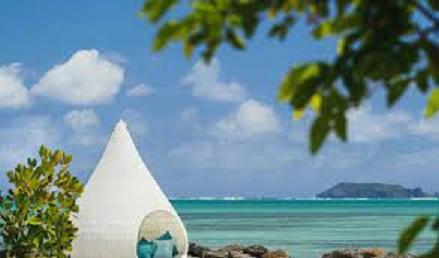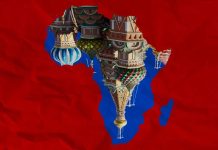Africa-Press – Mauritius. The Economic Development Board (EDB), the country’s other economic and financial institutions, as well as the ruling political class are no doubt following with great interest the deep turmoil that is literally shaking South African society today. One might even detect a smirk among those who are desperately trying to welcome funds from abroad and customers for the luxury villas.
Because since the end of the apartheid regime, the emigration of South Africans to other lands has been definitely set in motion with more and more privileged people from the old system but also other citizens settling elsewhere, including included in Mauritius.
The presence of natives of South Africa on Mauritian territory is increasingly felt, particularly in Rivière-Noire but also in Grand-Baie. Among these immigrants, there is a very high percentage of Boers, that is to say the descendants of Dutch settlers, but few “Anglos” – South Africans of British origin – and Indians.
Non-Boers favor Australia, Canada and the United States. On the other hand, black South Africans as well as young people from other African countries are also gradually settling in Mauritius, either as students or as illegal workers. Moreover, it is easy to see on construction sites more and more masons from the continent and Madagascar.
Having always been an outgoing society open to several waves of immigration, Mauritius should offer as many opportunities as possible to foreigners because their value-added contribution to the economic development of Mauritius is invaluable.
Our British heritage of hospitality and fair play would go a long way in dampening any new wave and managing it afterwards. When we see the relentlessness with which immigrants leave the mainland of Europe to cross the Channel and set foot on British soil, the lesson we learn is that these foreigners believe they can live better in the United Kingdom.
, which is not the richest country in Europe. The Boers favor Mauritius due to several factors.
First, they can afford a more privileged lifestyle, with domestic workers, drivers, gardeners and watchmen. A similar lifestyle is not possible in the United States, Canada and other rich countries.
In addition, the climate of Mauritius is pleasant. Not to mention its sea and its beaches. Also, because of the extreme inferiority complex that the vast majority of Mauritians feel towards people of European origin, the Boers encounter absolutely no hostility in the public square.
The Mauritian financial system is extremely liberal and it is easy for them to move funds with the utmost discretion. Another advantage: the Boer can go to South Africa to take care of his business and return to Mauritius at any given time.
Between the two countries, it is a five-hour flight. If the government is very happy to welcome them, especially with the current wave of violence in South Africa, it would also be necessary to examine their demographic weight in the various constituencies of the country.
Unlike the Bangladeshis, we do not see the MSM transporting them by bus on election day to vote in certain constituencies. At this stage, we do not even know if, taking advantage of their presence on the territory and their status as citizens of a Commonwealth country such as South Africa, they will go to the various primary schools in the country to register as voters.
If the Boers ever decide to take part in the vote, then their impact on a few constituencies in the country would have to be managed. The district of Rivière-Noire remains their cherished haven, but is this region capable of welcoming new ones and in large numbers? In principle, the northern coast, from Balaclava to Poste-Lafayette, could also be of interest to South Africans.
If they exercise their right to vote in the future, say in the 2029 and 2034 elections, then we would have to abandon our classic communalo-casteist calculations and radically change the paradigm in constituencies 14, 5, 6 and 7.
For More News And Analysis About Mauritius Follow Africa-Press







